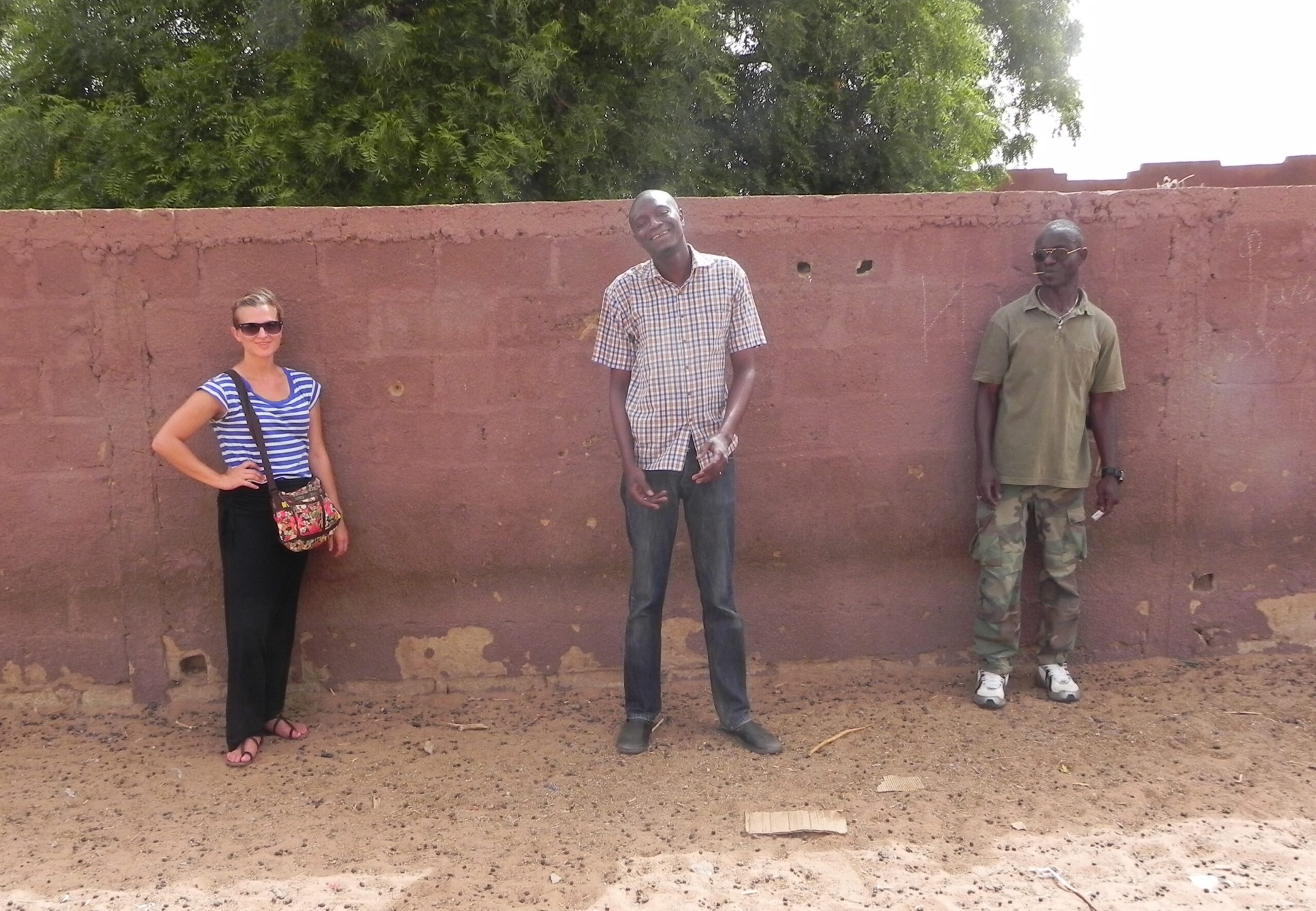From the barren Sahel desert of northern Senegal to the lush forests of Kedougou in the south, about 250 Peace Corps Volunteers (PCVs) are integrating into villages and working on health, economic, and agricultural development projects. One of the largest branches globally, Peace Corps Senegal is a model program in Africa. Throughout the past year, Peace Corps Senegal has been carrying the Monitoring and Evaluation (M&E) torch for Peace Corps by revising and strengthening their M&E practices. I am a Crook Fellow interning with Peace Corps Senegal this summer and my primary task is to evaluate their evaluation process.

Visiting a Peace Corps Volunteer for data quality assurance.
Reflective of international development in general, Peace Corps’ M&E has largely relied on anecdotes and qualitative information for most of its 50+ years of service. While stories do a great job of tugging at the heart strings, they do less to inform an organization of its overall impact. For Peace Corps, this makes it difficult to promote learning and growth within the organization. In early 2013, Peace Corps Senegal adopted a new program framework with standardized objectives and indicators. In theory, these indicators allow Peace Corps to collect higher quality data and compare that data across sites and time. For example, how many mothers were trained in exclusive breastfeeding, and how many of those mothers changed their behavior to reflect what they learned in the training? The indicators serve as a prompt to encourage PCVs to report the output (number of mothers trained), and the outcome (number of mothers who adopted the new behavior).
In international development, it is the outcome that we should be concerned with. Outcome data, however, is much harder to collect than outputs, and thus has historically not been collected. Despite significant effort over the past year, Peace Corps Senegal continues to encounter many challenges with the quality of their outcome data. Going back to our example, the PCV that trains 10 mothers on exclusive breast feeding may also report that all 10 mothers are now exclusively breastfeeding. This sounds great, but the numbers may not reflect the reality. Instead, it may just reflect the overly optimistic assessment that all mothers that are trained to breast feed will now exclusively breast feed.
My job this summer is to understand why PCVs are misreporting data, and to make recommendations for how Peace Corps Senegal can improve the process. Is there an M&E knowledge gap, an issue with the framework or data collection tools, or is it an attitude or cultural issue among PCVs? I started by studying the framework, data collection tools, and previously reported data. I wanted to understand the current practices and identify themes in reporting errors. Next I headed into the field to interview PCVs and observe their activities. Site visits were informative and exhausting. The long hours on bad roads were made easier by village hospitality and ripe mangoes at every stop. Now I’m back in the office analyzing my data and producing a report with findings and recommendations to improve the process.
Peace Corps Senegal staff are highly committed to improving M&E, which translates into a supportive environment for my internship and excitement among staff and volunteers to see results and recommendations. It’s an exciting time to be working on M&E, which is something you probably don’t hear too often!
Monitoring and Evaluation tournée in northern Senegal.



2 replies on “Assessing Peace Corps Senegal’s Monitoring and Evaluation Process”
Sounds ambitious and wholly necessary, Pete. You’re the man for the job. Onward and upward. And thank god for those mangoes.
Such fascinating work! I’m sure that evaluation of evaluation will see a lot of use and help them revise and strengthen their M&E processes further. Good luck on the last leg of your project.